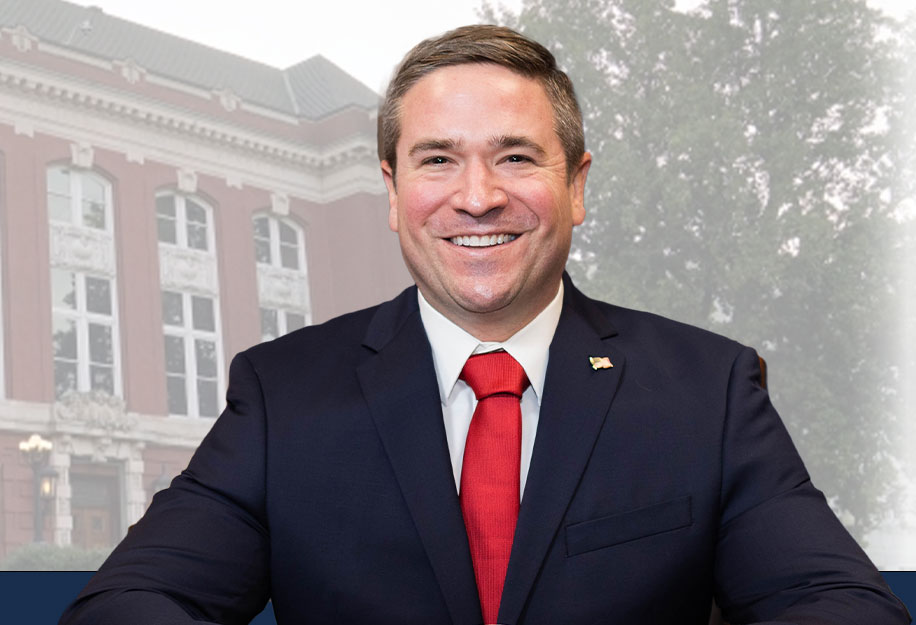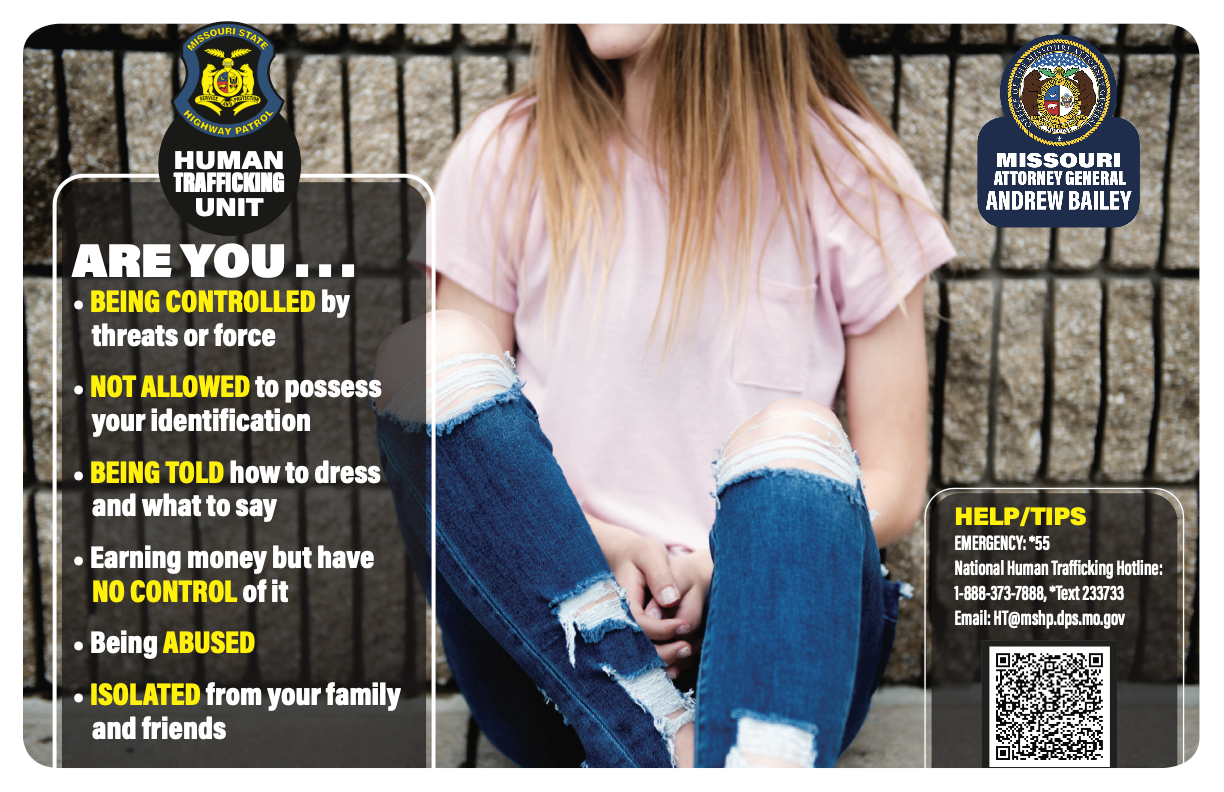RESOURCES
Where to Get Help:
If you believe you have identified someone still in the trafficking situation, alert law enforcement immediately at the numbers provided below. It may be unsafe to attempt to rescue a trafficking victim. You have no way of knowing how the trafficker may react and retaliate against the victim and you. If, however, you identify a victim who has escaped the trafficking situation, there are a number of organizations to whom the victim could be referred for help with shelter, medical care, legal assistance, and other critical services. In this case, call the National Human Trafficking Hotline described below.
911 Emergency:
For urgent situations, notify local law enforcement immediately by calling 911. You may also want to alert the National Human Trafficking Hotline described below so that they can ensure response by law enforcement officials knowledgeable about human trafficking.
1-888-373-7888 National Human Trafficking Hotline
Call the National Human Trafficking Hotline, a national 24-hour, toll-free, multilingual anti-trafficking hotline. Call 1-888-373-7888 to report a tip; connect with anti-trafficking services in your area; or request training and technical assistance, general information, or specific anti-trafficking resources. The Hotline is equipped to handle calls from all regions of the United States from a wide range of callers including, but not limited to: potential trafficking victims, community members, law enforcement, medical professionals, legal professionals, service providers, researchers, students, and policymakers.
Call federal law enforcement directly to report suspected human trafficking activity and get help:
- S. Department of Homeland Security at 1-866-347-2423 24 hours a day, 7 days a week, every day of the year, or submit a tip online at www.ice.gov/tips . Individuals across the world can report suspicious criminal activity to the U.S. Immigration and Customs Enforcement (ICE) Homeland Security Investigations (HSI) Tip Line. The Tip Line is accessible internationally by calling 1-802-872-6199. Highly trained specialists take reports from both the public and law enforcement agencies on more than 400 laws enforced by ICE HSI, including those related to human trafficking.
- You may also submit a tip online to the FBI at https://tips.fbi.gov/, or call your local FBI office (you can get their number at https://www.fbi.gov/contact-us/field-offices/field-offices).
- The State Department’s Diplomatic Security Service (DSS) investigates visa and passport fraud. Human trafficking often include visa fraud. As a result, DSS works with its U.S. and international law enforcement partners to investigate these crimes. Additionally, DSS leads on the investigation of trafficking cases when they involve diplomats. To submit a tip, please email TraffickingTips@state.gov.
Call the following federal government lines for other assistance:
- S. Department of Labor, Wage and Hour Division at 1-866-4USWAGE (1-866-487-9243) for cases where labor exploitation may be present but does not rise to the threshold of trafficking.
- S. Department of Labor OIG Hotline at 1-202-693-6999 or 1-800-347-3756, hotline@oig.dol.gov, or http://www.oig.dol.gov/hotlinemain.htm 24 hours a day, 7 days a week to report allegations of trafficking committed through fraud in DOL programs, including, but not limited to, the H-1B, H-2A, H-2B, and PERM. When filing an OIG Hotline complaint, it is not necessary to provide names or any other identifying information.
- Equal Employment Opportunity Commission (EEOC) at 1-800-669-4000 from 7:00am to 8:00pm (EST) for information about how workers, including trafficking victims, can file a charge of employment discrimination.
Report suspected child prostitution activity to the CyberTipline:
The National Center for Missing & Exploited Children, at 1-800-THE-LOST or www.cybertipline.com, 24 hours a day, 7 days a week. The Congressionally-authorized CyberTipline is operated by a nongovernmental organization and provides a means for reporting crimes against children and is staffed 24 hours a day, 7 days a week.


